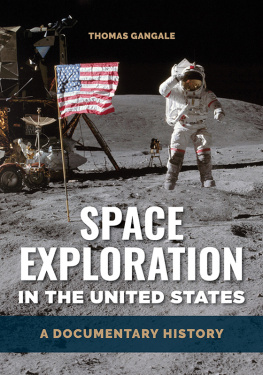
TUG OF WAR
CARLETON LIBRARY SERIES
The Carleton Library Series publishes books about Canadian economics, geography, history, politics, public policy, society and culture, and related topics, in the form of leading new scholarship and reprints of classics in these fields. The series is funded by Carleton University, published by McGill-Queens University Press, and is under the guidance of the Carleton Library Series Editorial Board, which consists of faculty members of Carleton University. Suggestions and proposals for manuscripts and new editions of classic works are welcome and may be directed to the Carleton Library Series Editorial Board c/o the Library, Carleton University, Ottawa KIS 5B6, at .
CLS board members: John Clarke, Ross Eaman, Jennifer Henderson, Laura Macdonald, Paul Litt, Stanley Winer, Barry Wright
| Asleep at the Switch The Political Economy of Federal Research and Development Policy since 1960 Bruce Smardon |
| And We Go On Will R. Bird Introduction and Afterword by David Williams |
| The Great War as I Saw It Frederick George Scott Introduction by Mark G. McGowan |
| The Canadian Oral History Reader Edited by Kristina R. Llewellyn, Alexander Freund, and Nolan Reilly |
| Lives in Transition Longitudinal Analysis from Historical Sources Edited by Peter Baskerville and Kris Inwood |
| W.A. Mackintosh The Life of a Canadian Economist Hugh Grant |
| Green-lite Complexity in Fifty Years of Canadian Environmental Policy, Governance, and Democracy G. Bruce Doern, Graeme Auld, and Christopher Stoney |
| Canadian Expeditionary Force, 19141919 Official History of the Canadian Army in the First World War G.W.L. Nicholson Introduction by Mark Osborne Humphries |
| Trade, Industrial Policy, and International Competition, Second Edition Richard G. Harris Introduction by David A. Wolfe |
| An Undisciplined Economist Robert G. Evans on Health Economics, Health Care Policy, and Population Health Edited by Morris L. Barer, Greg L. Stoddart, Kimberlyn M. McGrail, and Chris B. McLeod |
| Wildlife, Land, and People A Century of Change in Prairie Canada Donald G. Wetherell |
| Filling the Ranks Manpower in the Canadian Expeditionary Force, 19141918 Richard Holt |
| Tax, Order, and Good Government A New Political History of Canada, 18671917 E.A. Heaman |
| Catharine Parr Traills The Female Emigrants Guide Cooking with a Canadian Classic Edited by Nathalie Cooke and Fiona Lucas |
| Tug of War Surveillance Capitalism, Military Contracting, and the Rise of the Security State Jocelyn Wills |
TUG OF WAR
Surveillance Capitalism, Military Contracting, and the Rise of the Security State
JOCELYN WILLS
Carleton Library Series 242
McGill-Queens University Press
Montreal & Kingston London Chicago
McGill-Queens University Press 2017
ISBN 978-0-7735-5047-6 (cloth)
ISBN 978-0-7735-5048-3 (ePDF)
ISBN 978-0-7735-5049-0 (ePUB)
Legal deposit third quarter 2017
Bibliothque nationale du Qubec
Printed in Canada on acid-free paper that is 100% ancient forest free (100% post-consumer recycled), processed chlorine free.
McGill-Queens University Press acknowledges the support of the Canada Council for the Arts for our publishing program. We also acknowledge the financial support of the Government of Canada through the Canada Book Fund for our publishing activities.
Library and Archives Canada Cataloguing in Publication
Wills, Jocelyn, 1960, author
Tug of war : surveillance capitalism, military contracting, and the rise of the security state / Jocelyn Wills.
(Carleton library series ; 242)
Includes bibliographical references and index.
Issued in print and electronic formats.
ISBN 978-0-7735-5047-6 (cloth). ISBN 978-0-7735-5048-3 (ePDF). ISBN 978-0-7735-5049-0 (ePUB)
1. Security, International. 2. Space security. 3. Defense contracts. 4. Electronic surveillance. 5. Capitalism. I. Title. II. Series: Carleton library series ; 242
JZ5588.W55 2017 | 355.033 | C2017-902183-4 |
C2017-902184-2 |
This book was typeset by True to Type in 10.5/13 Sabon.
For Tom
Contents
Acknowledgments
This book has been long in the making, and I have many people and institutions to thank. First and foremost, I am deeply grateful to those I interviewed during the early 1990s, most I had never met before, but all graciously hosting me in homes and offices to share their stories about and experiences with MacDonald, Dettwiler and Associates during the firms first quarter century. Some are cited here; others are not, but together, they provided critical information for the chronology on which this book is built. More than twenty years later, I can still recall my time with most of them, but several continue to occupy a special place in my memories of those years. On a clear, crisp day in January 1993, Colin and Pat Lennox welcomed me into their home in Victoria, British Columbia, where Colin sat for an interview that began early and ended late. Pat joined us for most of the ten-hour session, jogging and sharing memories, then disappearing periodically to search for photographs and documents, always returning with food and drink to reinvigorate an already lively rendering of MDAs early years. During the late afternoon, another former employee Jan Price arrived to join the conversation, where she also generously provided insights that carried us through the early evening. The firms principle founders, John MacDonald and Vern Dettwiler, also sat for long, multiple interviews, generously receiving me into their world, providing moving recollections of times both exhilarating and painful, and imparting lessons learned as well as future hopes. John MacDonald, Dave Caddey, Dan Gelbart, Ray Maxwell, Dave Sloan, and Neil Thompson made me laugh and tear up during interviews. Harry Dollard and Doug Seymour shared their experiences as well as graduate work, both supplying careful analyses of MDAs trajectory at critical moments in the companys history. And John Pitts assisted me more than he could ever have known by providing support for the oral history project, crucial insights, and an initial interview list.
While I was in Vancouver, many people went out of their way to ensure my interview/research trips were comfortable and successful. Joy Birck, Johannes Halbertsma, Geri Jones, Heather Meehan, Rhonda Schultz and Rory Dafoe, and especially Iain Bruce and Peri Mehling opened their homes to me, providing the warmth, hospitality, and love I still cherish as I recall the days, then weeks and months they housed and fed me. I remain grateful that they continue to invite me back. My sister, Rhonda, and mother Beth McMurchie indulged my need to transcribe interviews while on our road trips together during the summer of 1993. And Harold Livesay and David Lux trained me in business history and the innovation process, read early drafts of the work I produced from the transcripts, and in later years continued to encourage my work on the larger project that has become this book.
Next page








